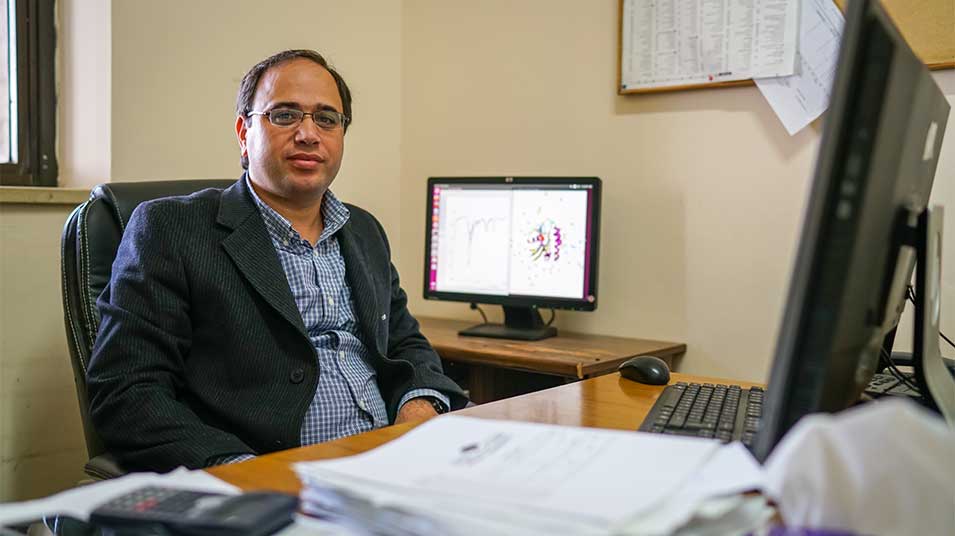Study by physics professor sheds light on a protein key to cancer growth
A new study by Birzeit University Physics Professor Dr. Abdallah Sayyed Ahmad sheds light on the structure and distribution of K-Ras protein particles and how they interact with cell membrane. K-Ras protein mutations are one of the primary causes of killer diseases such as lung and pancreatic cancer.
The study, carried out in cooperation with researchers from the McGovern Medical School at the University of Texas Health Science Center at Houston and published in the Journal of American Chemical Society, could spur research efforts to develop new cancer medications that inhibit complex K-Ras particles.
By conducting computational and biophysical experiments, Dr. Sayyed Ahmad and the researchers established that the K-Ras protein can form binary particles that can perform a dual role in the generation of cancerous cells.
Dr. Abdallah Sayyed Ahmad is an associate professor of computational and theoretical biophysics in the Department of Physics at Birzeit University. He received his B.A. in 1999 from Bethlehem University and his Ph.D. from Indiana University in 2005.
He is author and co-author of more than 20 publications in modeling of biological systems and computational biophysics and the recipient of multiple awards throughout his education and career such as John G. Burns Memorial Scholarship, Bethlehem University (1998); Richard Slagle Fellowship, Indiana University (2004); Consortium for Bioinformatics and Computational Biology Award, University of Minnesota (2005); and Minnesota Supercomputing Institute Research Scholar Award, University of Minnesota (2007).







